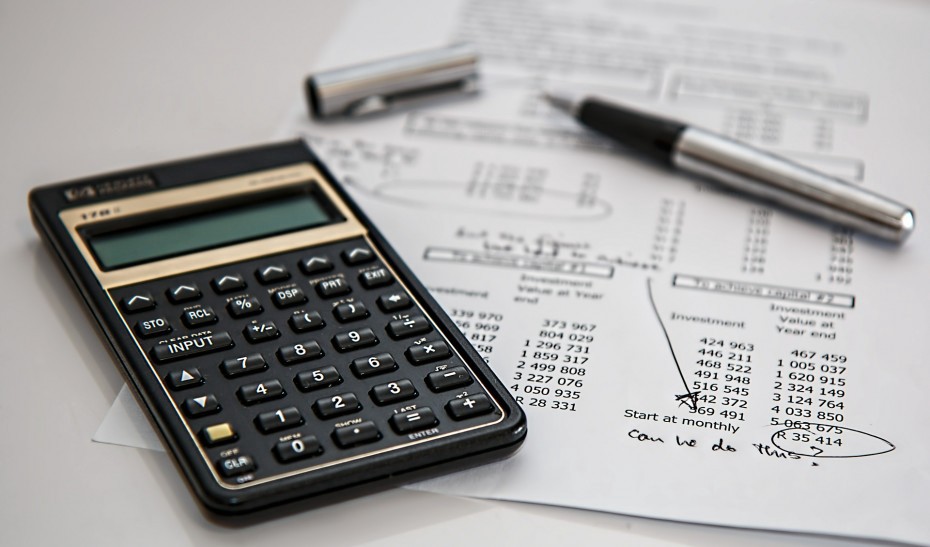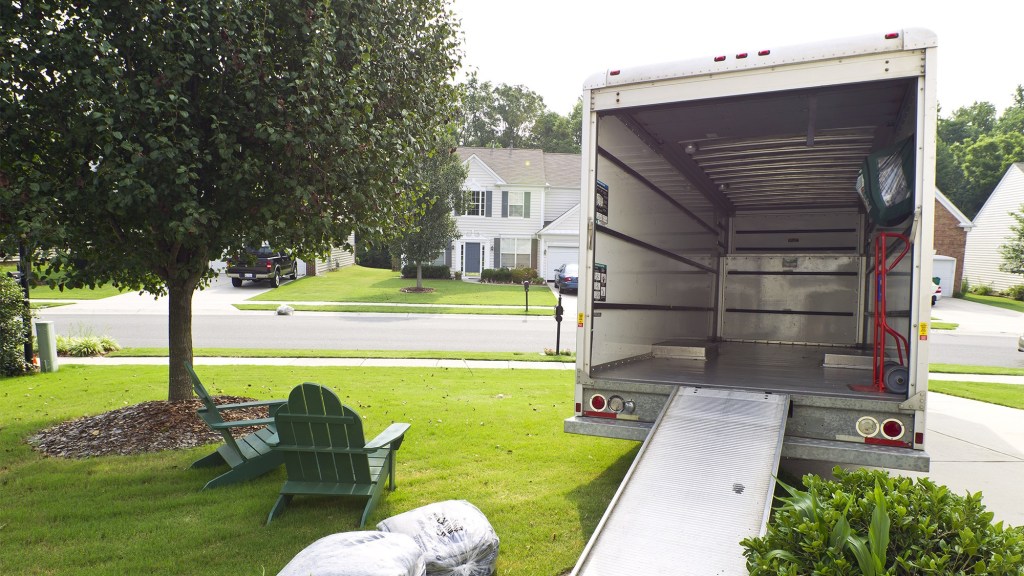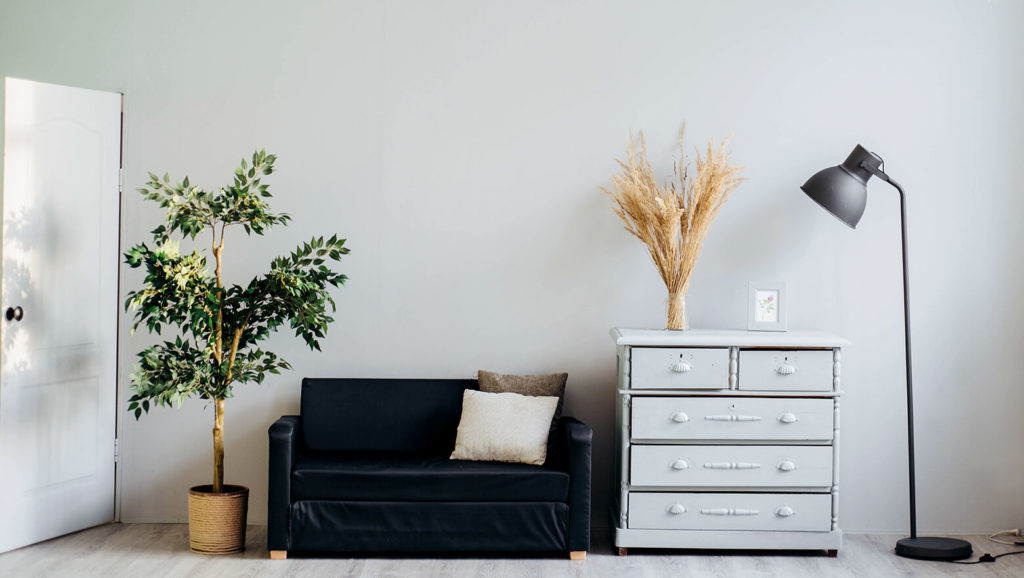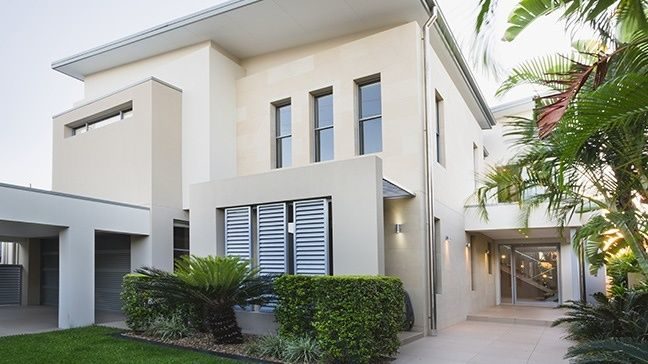House Hunting Tips for Moving Out of State
March 3, 2023
Purchasing a new home that is far away from your current one is a major life decision because it entails a significant financial investment. Having a new home where you can make new friends and start over is also an exciting and adventurous experience. Buying a new home far away from your current location, on the other hand, can be a rather stressful endeavor. It is associated with a great deal of mental and emotional strain. From deciding on the best place to relocate to, to finding the right realtor, buying within your budget, and finally planning your relocation, we’ve got you covered.
Here are a few pointers to help you with your home search.
When buying a new house, you must know how much money you have set aside for the purchase and relocation. You must be able to calculate the true cost of the house as well as the costs that would be incurred. Figure out how much it would cost to buy a new home, hire a real estate agent, hire a relocation specialist to help you move out, homeowner’s insurance, property taxes and utilities, house repairs, transportation, food, and other costs.
If possible, you will need to consider a mortgage loan from a bank or another mortgage institution willing to lend you the money you need to buy the house. However, working within your budget is recommended to stop accumulating debts that could lead to the loss of your home in the long run. If you don’t have the money right away, you might pay in installments. The first step in buying a new home should be to create a budget.
Also Read: Things You Should Know About Your House Down Payment
Before purchasing a home, you can pay a visit to the property to inspect it thoroughly. Even with the aid of a good realtor and a virtual tour, a visit to the house and inspection are needed. It’s typically a good idea to get a sense of how your life will be after you’ve moved into your new home. You can also hire a specialist to inspect the property. A good inspector will look over the whole house and give you professional advice about whether you can buy it or not. This will save you from making the wrong decision and having to live in a house that isn’t your dream home.
Also Read: Hidden Expenses When Purchasing A Home
One of the most important things to do when relocating and purchasing a new home is to find a decent and trustworthy realtor. You should be able to choose a realtor with whom you are comfortable working. Find a realtor with sufficient experience. Someone who is familiar with the housing market and the area in which you will be relocating. You should be able to reach out to the realtor at any time to speak with them.

Often ask for recommendations from other homeowners when choosing a realtor. A referral is valuable because it ensures that you are dealing with the right people. If you don’t know someone in the new area who can recommend a realtor, look for an online forum for that area and connect with people there. You may also study the realtor online or via a real estate firm to see if they are reliable and trustworthy.
As a result of the pandemic, consumers are turning to the internet to find a new home. They can conveniently go to a real estate website with a virtual house search and find an up-to-date listing of houses in the area they want. They can even take a virtual tour of the house they want to buy. This is advantageous because you would not have to drive to inspect the property. If you have a busy schedule, a virtual tour can be beneficial.
Your new house should be large enough to fit your whole family. However, keep in mind that you must always work within your budget. If you are single, a one-bedroom apartment is an option. You can get a two-bedroom apartment if you are newly married. You can also get an apartment that can fit both you and your guests if you are a couple who does not want to have children.
When you have a cat, you should think about a pet home, the school your children will attend, and accessibility features for an elderly person if you have one living with you, as well as other family members. If you are not working remotely, remember the distance between your home and your workplace. And if you work from home, you’ll need a home that can serve as both an office and a home.
Knowing your current city or location will go a long way toward assisting you in making the best decision when relocating to your new home. Visiting the new city and getting to know the area. It is important to relocate to a secure area. Check to see if the area is notorious for illegal activity or any other undesirable behaviors. Also, see if you’ll feel at ease in your new surroundings. It’s best to think about how people can communicate in the new place.
Some cities have a reputation for being people-friendly, laid-back, aggressive, and so on. You must be aware of the environment that best suits your way of life. You can also learn about the transit options available in the new city so that you can prepare your budget accordingly when you relocate. Consider other options, such as hotels, grocery stores, and art galleries.
Also Read: Tips on How to Find The Right Neighborhood
Finally, keep an open mind when making your decision. Flexibility is crucial. Although you may have a general understanding of the type of home and community you want to live in, you may find that there are other choices.
Are you considering relocating to another state? Wowmover will assist you in securely transporting yourself and your belongings to your new location. If you want a free quote for your long-distance move,
Related Articles:






The process of looking for and buying a new home can be both exciting and nerve-racking. If this is your first time purchasing a home, those emotions may be amplified. You’ll want to make sure you have everything you need so that you can deal with any situation that may arise. This is why you should be aware that the list price of the home you’ve chosen is not the total amount you’ll pay. There are a few hidden costs to be aware of before signing the paperwork. Knowing those costs ahead of time will make it easier to be excited on closing day.
Here are a few things to keep in mind:
One of the most significant advantages of living in a rental property is that if something breaks or malfunctions, you simply contact your landlord. They will also handle landscaping tasks such as snow removal and lawn cleanup. When purchasing a new home, it is always a good idea to have a home inspection performed. You’ll have a better idea of what you’re getting yourself into this way. You may also want to set aside money for maintenance and repairs, which are unavoidable when you own your own home.
Every house is unique. The cost of utilities varies depending on the size of the home, its location, and the types of utilities it requires. The average home spends about $111 per month on electricity. When compared to a two-bedroom apartment that costs $30 to $50 per month, this can quickly add up. It goes without saying that the larger your living space, the higher your energy bills will be. When you’re in the process of buying a new home, it’s easy to overlook this detail. But don’t let that stop you from being excited. Simply take this into account when calculating your overall budget.
Most of us have heard of closing costs, but what exactly are they? These fees can include a variety of items and vary from home to home. Closing costs, for the most part, refer to lender fees, a down payment on home insurance, miscellaneous taxes, and title insurance. These are the most common causes of closing costs, but they may vary depending on your specific situation. In general, closing costs will range between 2% and 5% of the home’s value.

Mortgage companies will not lend you money unless they take their own safety precautions. They will charge you interest in order to reduce their risk in trusting you to pay your mortgage accurately and on time. This is an additional expense that will be added to your monthly payments. Mortgage interest rates vary depending on your credit, but on a 30-year fixed-rate mortgage, you can expect to pay anywhere from 3% to 8%.
Also Read: Rental: Tips for First-Time Landlords
Though it varies by state, the average American will pay more than $2,000 in property taxes per year. However, in some states, such as New York, you will pay even more, which is close to $7,000 per year on average. This is definitely something you’ll want to think about when looking to buy your new home, and it’s often overlooked when you’re a first-time homebuyer.
Property taxes are typically included in your monthly mortgage payment, making them easier to manage. However, in addition to other lumped-in fees, property taxes will increase your monthly payment and may increase year over year. This is important to keep in mind when deciding how much money to spend on the list price.
Buying a new home necessitates time and research. You’ll want to make certain that you’re making the right decision when purchasing the home of your dreams. WowMover will be there to help with your moving stress when you finally put in that home offer, even if the decision is yours and yours alone.
Related Articles:






Before you embark on your next real estate adventure, knowing how long it takes to buy a house will help you set your goals and reduce stress. One thing is certain: purchasing a home is not an activity that real estate agents can tell you is designed to provide immediate gratification. Purchasing a home is a lengthy process. It’s satisfying and enjoyable, but it takes time.
Now let’s take a closer look at each, including examples of issues that may arise and cause the time it takes to close on a home to be extended.
You may wish to purchase a house, but are you able to do so? If that’s the case, what’s your budget? Before going out to look at houses in person, you must first answer these questions. If you intend to pay in full, the lender can determine how much you can afford based on your financial situation. They’ll examine your revenue, properties, debts, and credit score before sending you a pre-approval letter outlining the amount of money they’re willing to lend.
Lenders want your company, so they should issue a pre-approval letter quickly. Since you’ll need to connect your pre-approval letter to any deal you make, it’s better to contact your bank to get pre-approved sooner rather than later in the process. Being pre-approved helps you to know exactly how much you will spend right away. Your time is valuable; don’t waste it by looking at houses you can’t afford!
Most home buyers have a mental image of the type of home they want to purchase before they start looking. You can now get very detailed about what communities and homes will suit your budget now that you have your loan pre-approval.
Here’s what you’ll be doing now:
These are normal questions to ask, and they’re crucial to answer early in the home-buying process. As a result, you’ll be able to begin your home quest with a laser-like emphasis.
Since everyone is different, there is such a wide range of estimates for this phase. A third-time home buyer in a market where they’ve lived for twenty years, for example, is likely to make decisions more quickly than a first-time home buyer in a new area. Each individual takes a different amount of time to complete this step.
Also Read: How to Get Your Home Ready for Renters?
Hiring a real estate agent is a no-brainer because it will cost you nothing and will provide you with a slew of advantages. This does not, however, imply that you can hire the first agent you come across. You should devote some time to finding an experienced and competent agent who can effectively serve your interests.
Some clients prefer to communicate with an agent via emails or phone calls. It should only take a few days to complete this phase.
Now it’s time to have some fun! You can begin touring homes on the market that meet your criteria once you have your budget, priorities, and proper representation.
The length of time it takes to find a home is influenced by market conditions. Low inventory is common in a hot real estate market, with some homes attracting several offers shortly after being classified in the Multiple Listing Service (MLS). This will lengthen your quest because it will be far more difficult to find homes, let alone get your offer accepted. Similarly, if you have your heart set on a particular neighborhood, it can take some time before a home in that area becomes accessible.
Furthermore, the events in your life will have an effect on how long you spend looking at houses. People who are approaching a big life event such as a new job have a greater need for a home. Others may not be in a hurry and are willing to wait a long time before a home that perfectly suits their needs becomes available.
What is the average amount of time spent looking for a home? According to a report, the average buyer actively searches for 10 to 12 weeks and looks at a total of 10 properties.” However, for some people, this process could take months.
You’ve found a home you want and want to make a bid! Your real estate agent will draft an offer that includes the price and contingencies you want. Any of these contingencies can cause the purchase of your home to be delayed. The home sale contingency, for example, stipulates that if your current home does not sell, the closing of your new home will be postponed.
Also Read: How to Buy Your First Rental Property?
Following the receipt of your contract by the seller, several days of negotiations will ensue in which both parties try to negotiate an agreement. If there is an ongoing bidding war, you might even be competing with other buyers.
When the seller accepts your bid, you are legally under contract. The length of time the house is under contract before you close on it is specified in your bid. The way you pay for it would have a significant impact on how long it takes to close the deal.
Your bid would provide a funding contingency if you want to finance your future home with a mortgage. Since your lender requires time to underwrite, adding a funding contingency will result in a longer contract to close duration.
Based on the form of loan, below are some estimates:
Remember that these are just projections. A buyer with bad credit and uncertain sources of income may require 60-90 days to close on a house. However, you can speak with your loan officer about the number of days they prescribe. It might be tempting to extend your deadline to make your bid more attractive, but doing so puts your earnest money at risk.
Cash buyers, on the other hand, are not bound by these restrictions. They will close even more quickly, often in just a few days.
The escrow period starts after the seller approves your offer. Various tasks will be scheduled by your agent, including:
You’ll do a final walkthrough of the property with the listing agent within 24 hours of closing. Walkthroughs enable you to double-check that the repairs you ordered have been completed and that the property’s condition hasn’t changed significantly since the first display.
After that, you’ll sign a slew of papers to take ownership of your new home, you’ve made it all the way to the top! The pleasure you will receive from your new home will, ideally, outweigh any tension you may have experienced during this period.
So, what is the average time it takes to buy a home? For the most part, it’ll be a few months. However, for others, it could be six months or longer. It is determined by a number of factors and varies from person to person. Staying on top of deadlines and being informed about the measures involved, on the other hand, will help you prevent unnecessary delays.
Before You start house hunting. This is the part where you’ll need some cash upfront, so be sure to budget for it. Purchasing a home is never just about the price tag!
Consider your current monthly spending. Food, insurance, gas, rent, utilities, and caring for any dependents or pets account for a significant portion of most people’s income. Budgeting will become your best friend until you have a monthly mortgage payment to make.
Your weekly movie outings, occasional Starbucks, and weekend shopping sprees can become less important to you than paying your mortgage bill on time, so make sure you outline and discuss all of your current expenses appropriately.
You may wonder how you’ll deal with and adapt to these changes. Decide what are the most critical aspects of your lifestyle and what can be sacrificed. There are a few options available to assist you in keeping track of your finances.
To ensure that you can afford your mortgage payments, you must decide on a price range for your new home that makes sense for you based on your monthly spending.
Isn’t it true that your key life goal is to become a homeowner? Why are you here in the first place? Other goals, on the other hand, should be kept in mind if they are important to your future.
These are just things to keep in mind so you don’t spend too much money on your home and neglect to save for other important goals. Fortunately, the internet’s vastness offers a plethora of websites to choose from if you’re looking for a way to keep track of your objectives.
Before you start fantasizing about your wrap-around porch, and stainless steel appliances, make sure you have a credit score that banks will be proud of.
In general, a higher credit score means a lower interest rate, which means more money in your wallet.

Before you start looking for a home, talk to a few banks to get pre-qualified for a mortgage based on your credit score. You’ll be able to get an idea of how much you can easily afford this way before jumping in.
Related: How Your Credit Score Impact Mortgage Rates
Fortunately, there are many online tools for determining your credit score. For a free credit report and a $1 credit score, go to freecreditreport.com.
Before you start falling in love with that ranch in your dream neighborhood, you should really look into what types of mortgages are available to you depending on your financial situation.
The bank will assist you in determining what types of mortgages and interest rates you can handle, allowing your agent to quickly narrow down homes in your price range.
You should look into a Federal Housing Administration (FHA) loan if you don’t have enough money to put down 20%.
If you don’t pay your mortgage, the FHA guarantees to reimburse the lender. Lenders would encourage you to take out a big loan with an FHA loan because they know the government will pay it back.
If you have enough funds for a 20% down payment but don’t want to deal with the budget constraints or mortgage insurance premiums associated with an FHA loan… You’re better off getting a traditional loan.
Related Articles:






For you and your loved ones, moving into a new apartment can be an exciting time. You’ve probably already been dreaming about what your place looks like, your new neighborhood, and the happy memories you’re going to make. But when attempting to recall all of the things you need to make your new apartment feel like a home, the process can also be frustrating.
When moving into a new apartment, there are some necessities you should have. You know you’re going to need the basics, including a bed, a kitchen table, and a living room sofa, but some things you haven’t thought about will need a new spot.
What you need can rely largely on your past living situation. Are you moving into your first apartment and out of your parents’ house? Are you going to get a roommate or multiple roommates? How much room have you got? Based on your particular plans, your new apartment needs can vary, but with the right supplies, you’ll be prepared and relaxed.
One of the best ways to get ready for a relocation is by making a list of items you’ll need for your new apartment. To keep track, use this checklist. The kitchen is an easy place to start because you’ll probably have guests over and everybody loves eating.
Kitchen Items
Next, anything you need for the living room can be marked off. Be sure to consult with them if you have roommates and see if they can provide any of these.
Living Room Items
You should move on to your bedroom when you have purchased things for any shared space. Remember that you are going to spend a lot of time sleeping, studying and lounging in your bed, so you want to be as comfortable as possible.
Bedroom Items
You can have a shared bathroom or a personal bathroom when you move into your new apartment. Remember to carry these things in every case.
You should be in pretty good shape if you’ve crossed the above things off your list. However, special heirlooms that are crucial in creating a friendly home atmosphere can be some of your most valuable belongings.
You may need to move sensitive artwork, antiques or moving a piano. We can assist with professional moving services so that your important items safely enter your new home.
Miscellaneous things are other necessities to consider while moving into your new apartment. With cleaning supplies, home office supplies, tissues, laundry detergent and dryer sheets, disinfectant, a first aid kit, and a fire extinguisher, always remember to stock your new location.
Related Articles:






A sensible alternative is to rent a storage unit if you’re running out of room in your home or office. Here are some instructions to ensure that you get the correct storage unit and that the features you are looking for are offered by the storage facility.
You might still have an idea of what they are if you’ve never rented a storage unit before. The storage units at their base are enclosed spaces for storing your belongings in a clean, dry environment. But in terms of customer care, cleanliness, and security measures, you will be shocked at the broad chasm between facilities. While the price is always a factor, in comparison to having your things stolen or damaged, saving a few dollars each month will pale.
If you’ve determined that a storage unit is a good idea, determining the size is the next step. Although your initial storage may be things that just won’t fit into the garage or basement, consider other items that may be better kept in your storage unit that reside in your house. Stuff like decorations for holidays that are used only at a certain time of year. In addition, products such as lawn furniture and equipment for the yard.
Furthermore, you may not only want to decide what you want to store today, but you should try to predict what needs to be stored down the road. Will you be downsizing any time soon, for example? You may have additional furniture and other things that you want to hold, but you won’t have room for them.
Both the location of the storage facility itself as well as the location of the unit at the facility when we say location. You may be tempted to rent from a storage company that is nearest to your current home with regard to the location of the facility. While convenient, the facility can not have the characteristics you really want. A better plan is to expand the diameter of your quest to include facilities within half an hour of your house. The truth is, every day, week, or even month, you will most likely not be visiting your moving storage unit. You can also find one that provides better facilities at a lower price by expanding your search.
When you identify the location of the storage facility, find out where you want your unit to be in the facility. If the unit should be indoor or outdoor is the first decision. One that is housed inside the storage unit building is an indoor unit. They are accessible through an indoor corridor and are situated on the first, second, or even third levels, with elevator access to the upper floors.
The benefits of indoor units are that they are easier to enter, and your belongings would be safer from the weather as well as preserved year-round at a reasonably uniform temperature. The drawbacks are that loading and unloading objects, especially large items such as furniture, may be more difficult for you. Your hours of access may also be slightly more limited.
Outdoor units are those which are normally reached by driving up to them. The profit is the ease of loading and unloading directly into them. Outdoor unit sizes can also be larger than indoor units. These modules, however, are not quite as cozy as their counterparts indoors. And in the rain, snow, or other weather problems, you might find yourself having to move objects.
If you felt there was a risk your things would be stolen, you wouldn’t rent a storage unit, right? Well, with cut-rate storage firms, this occurs all too frequently. Identifying businesses that use the new security measures is what you want to do.
Do they feature the whole facility’s security system, indoors and out? Ask questions about how long the video is stored and how it is recorded.
Find out what kind of access system they use, as well. Ideally, you’ll want a facility that provides access to either fingerprint sensors or custom pin-code. These types of entry systems allow exactly who enters and exits and when to be monitored by the storage facility. Some facilities also have units that are individually notified for added protection.
Inspect the facility’s perimeter fencing. Does it go all over the floor? Is there any harm that might make access possible?
Finally, what kind of locks are located on the storage units themselves? Usually, there are three kinds of locks you’ll find on storage units. The typical padlock comes first. These can be quickly cut using bolt cutters while being inexpensive. Next, there are locks for discs.
These are similar to padlocks, but feature smaller, more difficult to cut, angled shackles. Then you’ve got cylinder locks, similar to the deadbolt lock used on the front door of your house. This is the most safe lock available, mostly because bolt cutters can not be used to cut it. The best advice is to check for a storage facility providing this kind of lock.
Most storage facilities sold only unheated storage units in the olden days of the storage industry. These units were also not usually insulated, meaning that your belongings were exposed to temperature and humidity extremes, which could be very dangerous to objects such as appliances, antiques and other items, depending on what you kept.
There are several higher-end installations today that provide either heated storage units or climate-controlled units. During the winter months, heated units hold the temperature up. They are also usually insulated so that within the unit, temperatures will not get too high during the summer months. Climate-controlled units are those that are year-round, thermostatically regulated to a constant temperature. This is the way to go if you have fragile objects.
Units that are made of steel are another thing to look for. Wood framing and drywall storage units absorb humidity and odor. These will enter your belongings finally, degrading them.
In reality, the best way to decide what you really get is to go to the facility you’re thinking about and ask to be shown around. There will be competent, friendly workers in a good storage company who will be more than happy to give you a full tour and answer all your questions. That can be a fair indicator of the type of service you are likely to get after you have rented, if you get a staff member who appears disinterested or irritated with questions you ask.
Ask to see the actual storage unit that you will rent or at least one on or in the same location on the same floor. This way, you will begin to imagine what it would be like to move your things in and out and be able to measure the necessary effort.
Ask other questions, such as what access and office hours are, whether the units are regularly monitored for water leakage, and what kind of pest control they use. Believe it or not, rodents have a major issue with certain storage facilities. In one of these, you certainly don’t want to store your valuables.
Check the storage facility feedback that you’re considering. Make sure to do it, whether you do it first or last. Read not just the feedback on the company’s website, but the Yelp and Google reviews. You’ll be able to get a better picture of what clients think of the facility by reading feedback on various pages.
Many storage facilities demand that you keep insurance in your unit for the contents. To see if your homeowners or renter’s insurance covers your goods in storage, you’ll want to check with our insurance provider. If not, via the storage business itself, storage insurance would almost invariably be available.
The benefits of using the insurance of the storage company are that it is usually very inexpensive, often covers rodent damage and transit items, and often comes with no deductible, while if you make a claim with the insurance of your homeowner, you will first have to pay your deductible and then run the risk of upping or cancelling your insurance.
Determine what the leasing policy of the company is. Do they sell month-to-month no-deposit leases or last month’s rent? Are you liable for the whole month if you quit in the middle of the month? A good facility would allow you, without a long lease agreement, to rent from month to month. If you leave mid-month, if proper notice has been issued, you will not be charged for a full month’s rental.
Know when payments are due, about the late payment policy of the company, and the methods of payment. In order to make paying your bill quick, some storage companies offer direct pay options as well as online bill pay.
Storing your belongings has come a long way in a storage facility. With so many storage choices out there, to ensure you get the storage you want and need, it’s important to do your homework.
Related Articles :
When hiring a moving truck for your moving needs, there is a range of important aspects that you must remember. Note that it might seem fairly easy to hire a moving vehicle, but it does contain a few potential pitfalls that you might fall into if you’re not careful enough.
If you can also rent the requisite moving equipment from them, such as a moving dolly, furniture sliders, moving blankets, or buy all the packing supplies you would need to secure your goods from them. If yes, then compare the trailer rental or selling prices with other suppliers in order to ensure that their rates are competitive and that you are not overcharged grossly.
In order to reserve the truck for the date you need it, some truck rental companies will request a deposit. Ask your rental service if you need a credit card to pay the charge for the deposit. Often, ask when you would expect the deposit or the fee to be deducted from your credit card to be returned to you. Most importantly, ask them what will happen if, for some reason or another, you cancel your truck booking. Will you lose the deposit as a cancellation fee?
You will be given different forms of insurance coverage by the truck rental company you have chosen to give you peace of mind when driving the freight vehicle. If an accident occurs on the lane, you should be helped with the incurred costs by the truck rental insurance you have bought. Keep in mind that most insurance plans for rental vehicles will only cover the moving truck, so if you’re concerned about damaging your stuff, then you’re going to have to find extra insurance for freight.

Are you going to have to pay out of your own pocket to get reimbursed by the business then? Or is the truck rental agency going to pay in advance? Is there roadside assistance provided by the truck rental company? If the moving vehicle experiences a mechanical failure of some kind along the way, are you allowed to use particular service stations? Before you rent the moving van, get the essential details.
All you have to do is make sure you rent a moving vehicle that is in good technical condition and that you can drive it safely to wherever you need to go. For any visible signs of injury, check the truck and report something that is out of the ordinary. Then, check the tires, lights, signals, and side-mirrors of the vehicle. Before you rent it, make sure you are familiar with the fundamental controls of the moving truck.
Be mindful of potential fines and additional charges levied in specific conditions by the truck rental company.
You are supposed to return the leased truck with a full gas tank, for example, because at the time of renting it, that’s how you would have it. The company will compensate you for the missing fuel, most frequently at a higher price than the current market rate, if you do not return the vehicle with its gas tank full. Even if you return the dirty, messy, and untidy truck, then you’re likely to get a cleaning fee paid. There is also a penalty, of course, for returning the vehicle later than expected.
Also, Read: Things to know before Moving in the Rain
During your whole DIY move, that is often the most critical step. When it comes to reacting appropriately to the needs of their clients, you need a moving truck agency that is proven time and again to be trustworthy and efficient.
Related Articles:
Growing tired of renting? You might be thinking about buying a starter home if you’re a young professional looking to take advantage of low-interest rates or a young family wanting to set down some roots. For those on a tight budget, not only is a starter home a great option, but it is also a good way to start building equity, as opposed to throwing away rental cash. If you’re not quite prepared to buy the home forever, it’s also a smart way to ease into the homebuying process. Not sure what? Not sure what?
Usually, a starter home is the first home a buyer can realistically afford to purchase. While it does not have all the bells and whistles that a “forever home” would ideally have, it meets the purchaser’s immediate needs. Starter homes tend to be smaller and cheaper than a house for eternity. Nobody would consider a 6-bedroom, 4,000 square foot house to be a starter home, for example. For young adults, newlyweds, young families, and everyone hoping to live in one place for up to five years, starter homes are a good choice.
Before purchasing a starter home, the most important variables to remember are: Now that you understand the advantages and drawbacks of buying, let’s look at other essential considerations to consider.
Just because it is more affordable than a home that is forever, it doesn’t always make sense to buy one. When house hunting, significant expenses to bear in mind include closing costs, property taxes, homeowners’ insurance, repair, and repair costs, and utility bills. While a starter home can seem inexpensive, depending on the age and condition of the property, it may end up being a cash pit. If a starter home needs repairs or modifications, be sure to also take this expense into account.
The resale potential is particularly relevant when purchasing. Of course, nothing more affects a home’s resale potential than its venue. As any realtor would tell you, “place, place, location” is the single most important factor affecting the price of a house. If you plan to sell your starter home eventually or rent it out to tenants, then the location of a home should be top of mind.
Are home prices going up-and-up in your city? Or are they dropping at present? Prior to buying a starter home (or any home!), make sure to understand the state of the market. If the housing market, for example, is going high and prices are rising, then this is generally a good reason to buy a starter home. In a hot housing market, buying an affordable starter home enables homebuyers to get in at ground level.
Also Read: How to Buy Your First Rental Property
The hope is that in a few years, if and when they go to sell their house, they will be able to make a decent profit on the selling of the house. On the other hand, if the housing market isn’t good, then buying a starter home that’s just going to depreciate in value is probably not a smart idea. Unfortunately, this is likely to result in the home buyer not being able to recover the money they put into the property.
Many starter homes, which is part of why they appear to be affordable, are limited in scale. Although you can need to compromise on space when buying a starter home, when it comes to square footage and the number of bedrooms, it’s crucial not to compromise too much. Our advice is to make sure that for the next three to five years you have enough space. Although this will inevitably be outgrown, the intention is to live there comfortably for at least many years.
Be sure to consider your future plans before buying a starter home. Do you plan to stay in for at least five years, for example? Are you planning to extend your family? In the next few years, are you considering a career change? What about a change of location? Can you rent or sell a starter home in the future? While you can’t predict it all, before buying a home, it’s crucial to hammer out your future plans and have some idea of your objectives (both financial and personal).
Although it is a brilliant idea for many to buy a starter home, there are still a range of downsides to consider. Second, it is an costly and time-consuming method to purchase a house (even a starter house). You can have to pay for closing costs and, not to mention, moving costs, Realtor fees. It’s simply easier, in many instances, to only rent. This is particularly true in expensive housing markets where inventory is low (think: San Francisco, Boston or Washington , DC), and starter homes are very expensive. Although equity is obviously healthy, leasing is often still cheaper in expensive housing markets than buying a starter home.
A second downside to buying a starter home is that they are just that: homes for starts. The buyer can end up outgrowing the home more quickly than they intend, considering that starter homes tend to be smaller. It will make more sense, in certain situations, to simply continue renting until you are prepared to buy the house forever.

Buying a starter home over an everlasting home has many benefits. Second, for someone who is tired of spending money on rent, buying a home gives them a solid place to develop equity and savings for the future. If the market appreciates over time, so when it comes time to sell the home, you should be able to make money. You might also hold the starter home, on the other hand, and earn money renting it out.
A second advantage of buying a home is that it is simply more economical than a home that will last forever. Anything from the initial down payment and annual interest payments to energy bills and property taxes would cost less than if you purchased an eternally costly home. The third advantage of buying a home is that if and when you need to leave, you certainly won’t be trapped for the long term. Starter homes have a propensity to sell early. Not only that but when living there, you would also not feel “underwater” (so to speak) because you can actually afford to own it.
Our website makes it easy to find the right moving company for the job and to book it. Both relocation companies are accredited and insured in our network, so you can rest assured that your transfer will be in good hands.
Related Articles:
Yep!Real estate can generate profits, including your own house.
Perhaps by renting out storage space in your garage or basement, you are bringing in some extra money. You could even rent out an occasional room on Airbnb, or rent a room through the sharing economy to a roommate, or some other sort of house hacking.
By renting out an entire house, ready to up your game?
The purchasing of long-term rental properties, along with a few threats, comes with a slew of benefits. The good news is that by good ol ‘fashioned planning, you can minimize each risk.
You gain financial freedom when you generate enough rental income to cover your living expenses, and your day job becomes optional.
Here’s what you need to know about the construction of passive rental property revenue and how to ensure that you always come out ahead.
Why should you purchase a property for rent? As compared to bonds or securities or a mutual fund, what makes it a good investment?
Consider these benefits for long-term real estate investments as you explore where to invest your money.
Rental assets come with an abundance of tax advantages.
The IRS allows any possible expense to be deducted, plus other paper expenditures such as depreciation. You can subtract most closing costs, property management costs, mortgage interest, property taxes , insurance, legal fees, maintenance costs, and more on most closing costs (and some can be depreciated).
Best of all, even though you take the regular deduction, you will take these deductions. No needed itemizing!
You cross your fingers when you buy stock, and hope for the best. Also, bonds that state their returns upfront, depending on the interest rate environment of the day, fluctuate in resale value.
By comparison, rental properties offer returns that you can measure in advance. You know the rent on the market, you know your purchase price, and you can accurately forecast expenses.
Where too many new investors in rental property screw up is in ignoring or underestimating the expenditures that are irregular, yet unavoidable. Alternatively, investors need to take the long-term average of costs such as vacancy rate, maintenance, and major repairs. They don’t hit on a monthly basis but hit semi-regularly.
Fortunately, you can reliably forecast them. For example, by interacting with local property managers and landlords who work there, you can easily discover the vacancy rate for a given neighborhood.
Rental properties eternally produce income.
They never age, they never quit paying dividends, they never declare bankruptcy. They can burn down, of course, but insurance protects you from the risk.
You’re beginning to collect income now, and you’re going to collect even more income in 30 years from now. After the initial property acquisition, all without having to raise a finger, if you want to employ a property manager. If you don’t, more and more options are at your disposal to automate your property management.
You have to deduct inflation for most investments to obtain the actual return. For instance, if a five-year bond pays 4 percent interest, but inflation runs at 2.5 percent over the five years you keep the bond, then the actual return on investment is only 1.5%.
For rental properties, this is not the case.
Not only are rents rising alongside inflation, they’re one of inflation’s main triggers. Rents almost always increase at or faster inflation rates, so you’re secured implicitly against the slow ebb of inflation that drains your returns.
The impact compounds when you use the money of other people to purchase your rental properties, too.
You’re faced with a particular issue when your retirement portfolio consists of stocks and bonds: they often don’t generate enough ongoing income to survive on.
This means that over the course of their retirement, seniors have to gradually sell their nest eggs, and hope they don’t run out of money in their lifetime. They worry about issues such as secure withdrawal rates and return risk series. Living with it is a horrible fear and many retirees are continually testing their remaining fund balance for themselves.
Rental properties, on the other hand, keep producing revenue indefinitely with an average yield of 10-15%, which is almost twice what stocks and bonds would give you. Not to mention, in order to produce that kind of money, you do not have to sell your rental property.
Just the opposite: over time, they just become more important.
Rental properties increase in value over time as a general rule, since demand for housing increases over time. In the meantime, housing supplies, given the steadily growing labor and material costs and the limited supply of suitable property, are becoming increasingly costly to manufacture.
Values are going up steadily, and your mortgage balance is going down steadily. So, even though you raise money on rentals every month, you build equity, too. For instance, in a good market, property prices across the United States rise about 3-5 percent each year.
Real estate lets you leverage the resources of other people to create your own asset portfolio. A portfolio that pays you cash to boot each month.
Thus, with a rental property loan, you can fund much of the purchase price, make a monthly profit, and then your tenants pay off the loan for you. Speak of win-win!
If you want, you can also use your rental cash flow to pay off your mortgage sooner and get rid of the monthly payment.
But before you do, note that each month your mortgage payment remains the same, even as your rent increases. That means that at a faster pace than your rentals alone, your profit margin increases.
Imagine $1,000 in-home rentals, $500 a month in rental property loans, and a total of $400 in non-mortgage expenses. So, your margin for monthly cash flow is $100.
Rents in your market are growing by a healthy 4 percent over the next year. The rent goes up to $1,040, but it remains the same for most of your expenses.
So, your monthly cash flow grew from $100 to $140: a profit gain of 40 percent, even though the rent increased by just 4 percent!
That’s the beauty of leverage.
Before committing, be sure to compare rental property loans with interest rates , fees, down payments, and conditions, as most loans last 15-30 years and refinancing is costly.
Also Read: Things to Consider Before Moving into a Rental Property
All upside and no risk is no investment. And although with a rental property calculator you can predict returns, not everybody calculates it correct.
Here are the three main threats facing rental property owners, beyond miscalculations.

Vacancies are a fact of investing in rent. No property will ever have a 100 percent occupancy rate.
So many tenants are worried: what if I can’t rent my property and for a long time it stays vacant?
If before buying, you ran the numbers correctly in a rental property calculator, you can budget every month for the vacancy rate. For instance, if the neighborhood of your property has a 5 percent vacancy rate, 5 percent of any rent payment for potential vacancies should be set aside.
Bear in mind that there are no high vacancy rates in healthy neighborhoods. You should have no problem re-renting your property if you choose a neighborhood with relatively high demand.
What happens if the rent stops being paid by the tenants?
Often it occurs. But thankfully, not too much, and you have many ways to avoid losses due to rent defaults.
Second, by screening your tenants extensively, you can avoid losses. That begins with reports like credit, criminal, and eviction reports, but there’s no end to screening. You can also check their history of wages, employment, and rent payments.
But you can still buy insurance against your defaulting tenants nowadays. It usually costs $300-400 a year, and the insurer covers it while you file eviction and find new tenants if your tenant stops paying the rent.
Because of rent defaults, landlords will essentially eliminate the possibility of damages between aggressive tenant screening and rent default insurance.
Also Read: How to Protect Your Vacation Rental Property
Another danger comes from the damage to your property by tenants. And let’s face it: you’re offering them ownership of hundreds of thousands of dollars worth of properties.
With tenant screening and insurance, you can also minimize this risk. Stop by their current home and see how they live before accepting an applicant that otherwise looks fine. Are they treating it with respect? Are they clean?
They’re treating that house, though, that’s how they’re treating yours. Decide correspondingly.
Some cover against harm caused by tenants is also offered by insurance policies. But make sure to carefully read the fine print and ask your agent what is covered and what is not.
But a simple security deposit is the conventional defense against tenant harm. Take the cost out of their deposit when they move out if they harm your house.
Finally, carry out semi-annual checks to find problems early, and either evict or non-renew tenants who do not treat your rental property with the respect it deserves.
Like any investment, rental properties do come with risks. But with simple planning and foresight, you can handle and minimize those risks.
You will gain continuing income in exchange, which increases much faster than inflation, and appreciates all the time. Profits from assets that you can largely acquire with the money of other citizens, even though you reap tax benefits and generate equity.
You can cover your monthly living expenses with ample passive rental income, and achieve financial independence and early retirement (FIRE).
If there’s a drawback, it’s that rental properties take some effort and experience to purchase, beyond the risks described above. It’s a barrier to entry, which prohibits investing by the average citizen.
But it’s that very barrier to entry that keeps the returns higher for those willing to take on that initial investment of knowledge and work. In other words, that barrier weeds out the indifferent, leaving only those who truly want it.
Related Articles:





